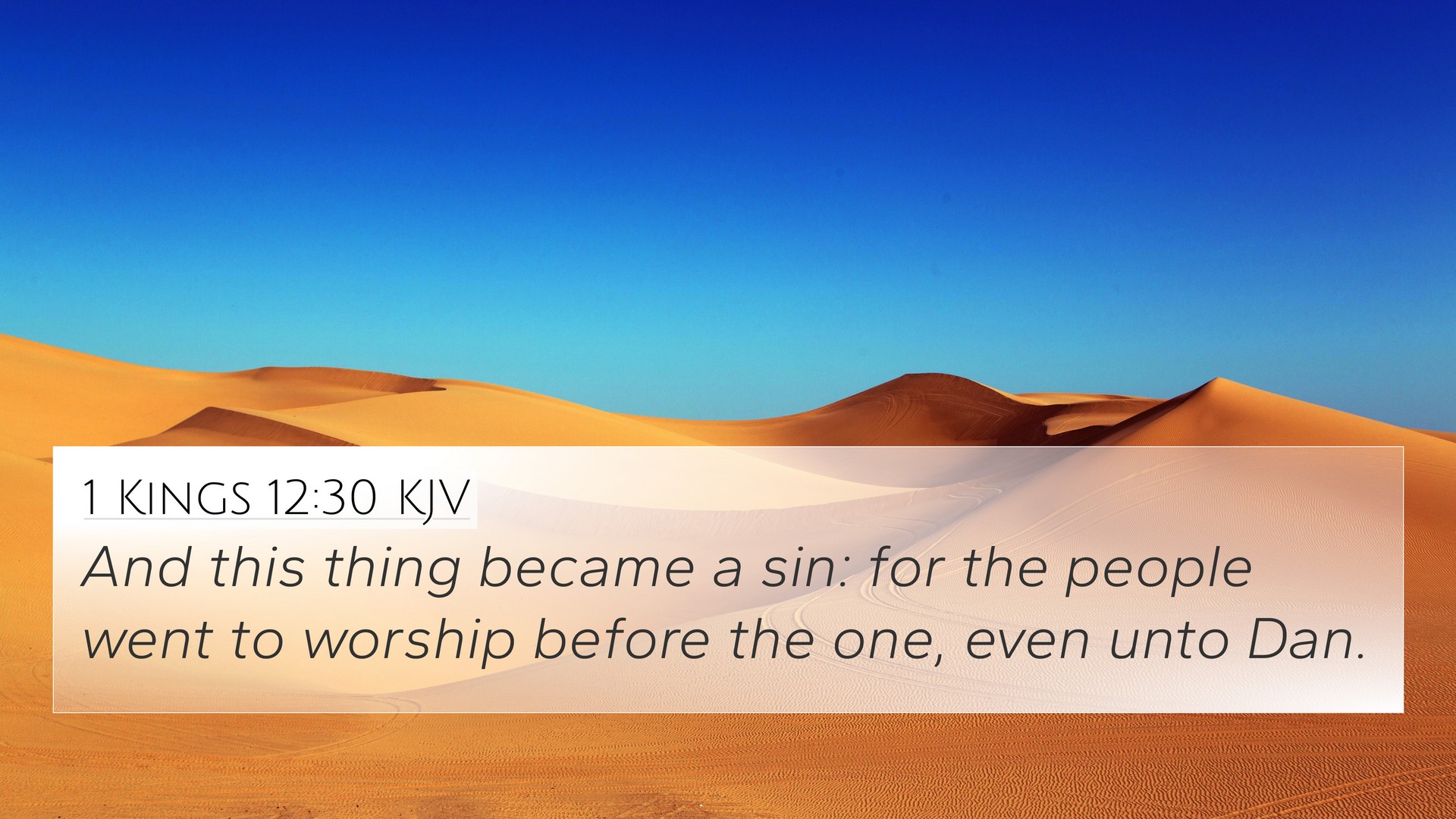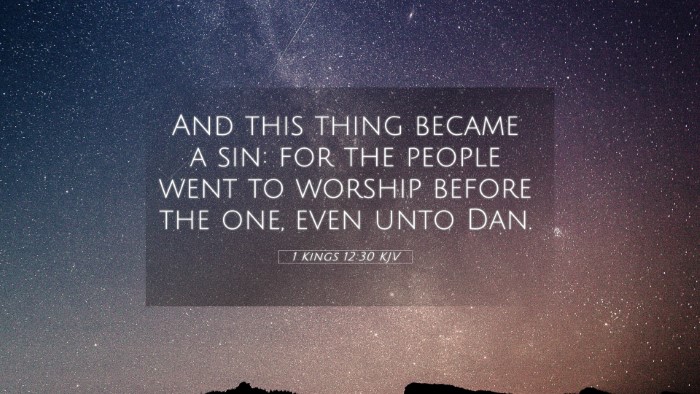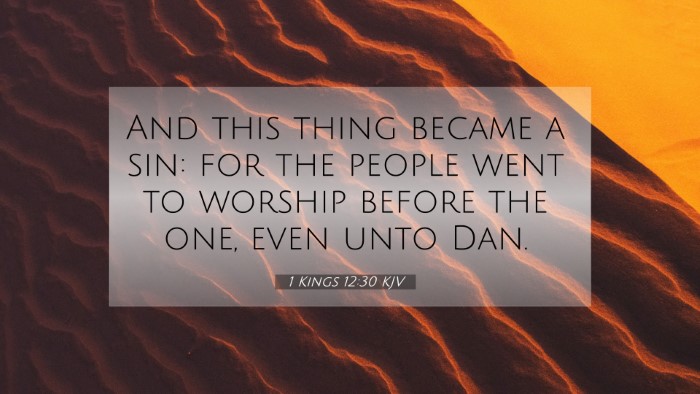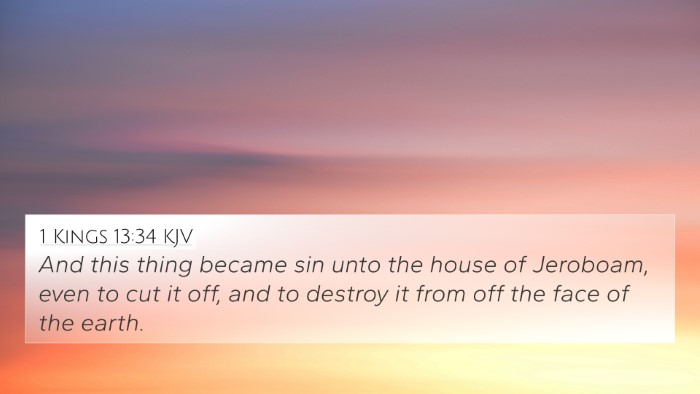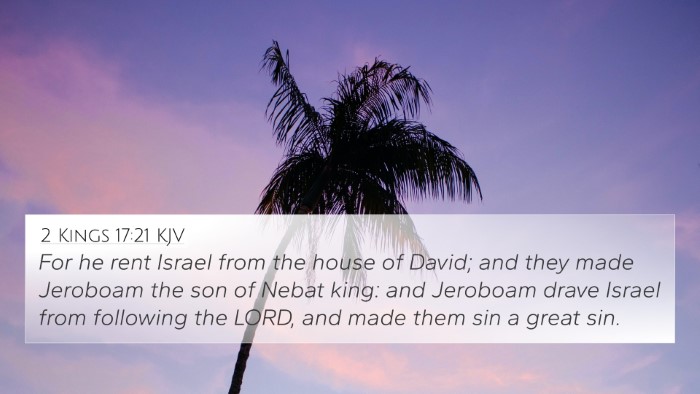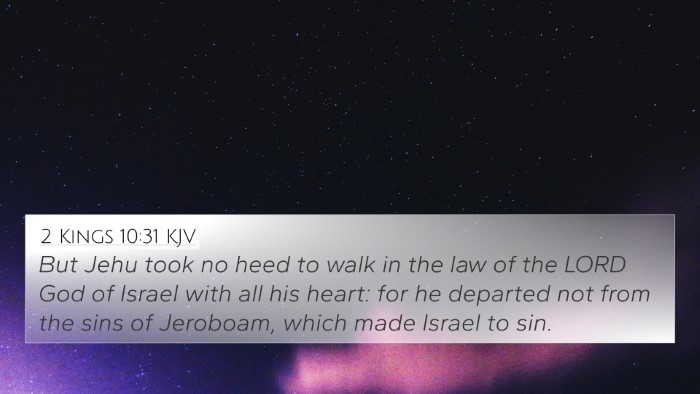1 Kings 12:30 - Overview and Meaning
This verse states, "And this thing became a sin: for the people went to worship before the one, even unto Dan." It describes the pivotal moment when Jeroboam, after being made king of the northern tribes of Israel, established a new place of worship to prevent his subjects from going back to Jerusalem. This decision had significant theological implications and marked the beginning of Israel's deviation from true worship.
Key Themes in 1 Kings 12:30
- Idolatry: Jeroboam's creation of a rival site for worship signified a shift towards idolatry.
- Leadership: The role of a leader in guiding the people towards God or away from Him.
- Consequences of Sin: The passage illustrates the direct repercussions of turning away from the commandments of the Lord.
Commentary Insights
Matthew Henry's Commentary:
Henry emphasizes that Jeroboam's actions resulted in a permanent sin for the tribes of Israel. He notes that although Jeroboam intended to keep the people from returning to Jerusalem for worship, he ended up leading them into sin, which was deeply rooted in their idolatrous practices. His choice highlighted a key principle of leadership—failing to uphold true worship leads to collective spiritual decline.
Albert Barnes' Notes:
Barnes points out that Jeroboam's establishment of worship at Dan was a direct violation of God's command to worship only in Jerusalem. He mentions that the two calves he set up were intended to represent the God of Israel, but instead they became symbols of sin, which led the people into a range of corrupt practices. Barnes explains that the sin was not only symbolic but resulted in real consequences for the nation as they deviated from God's path.
Adam Clarke's Commentary:
Clarke provides a detailed exploration of the significance of Dan and Bethel as worship centers. He notes that while Jeroboam sought to solidify his rule by providing an alternative to Jerusalem, he ultimately led the nation away from true worship. Clarke discusses the importance of adhering to God’s instructions concerning worship, emphasizing that any deviation can lead to broader implications for faith and morality in a community.
Cross-References for 1 Kings 12:30
Exodus 20:4-5 - Discusses God's command against idolatry and making graven images.
1 Kings 12:28 - Jeroboam's rationale for building the golden calves to prevent the people from returning to Jerusalem.
2 Kings 10:29 - Highlights the continuation of Jeroboam's sin in Israel.
Hosea 8:5-6 - Refers to Israel's idolatry, linking back to the sin introduced by Jeroboam.
1 Chronicles 15:13 - Discusses the importance of following God's prescribed ways for worship.
Deuteronomy 12:5 - The instruction to seek the place that the Lord your God will choose for worship.
Acts 7:43 - References Israel's idolatry and improper worship practices.
Understanding Jeroboam's Decision
The decision made by King Jeroboam illustrates the dangers of leadership that prioritizes political stability over spiritual integrity. His fear of losing control of his kingdom resulted in a foundational sin that led the Israelites astray. Jeroboam's attempt to manipulate worship practices ultimately set a precedent for idolatry in Israel.
Jeroboam seized the opportunity to establish control but failed to recognize that his actions would lead to long-term consequences. This scenario illustrates how leaders can make detrimental choices under pressure, impacting their people. The nature of sin, as seen in this passage, is often the result of misguided intentions.
Theological Implications
1 Kings 12:30 serves as a cautionary tale, urging readers to consider the implications of turning away from God’s commands. This situation fosters a connection between leadership, idolatry, and the consequences faced by a community due to their choices. It highlights the importance of maintaining fidelity to God's commandments, particularly in matters of worship.
Conclusion
The narrative surrounding 1 Kings 12:30 reminds believers of the significance of adhering to God's ordained ways, as well as the dangers of allowing personal or political motives to overshadow spiritual truth. In examining this verse, one is encouraged to reflect on personal faithfulness and the impact of collective worship practices.
